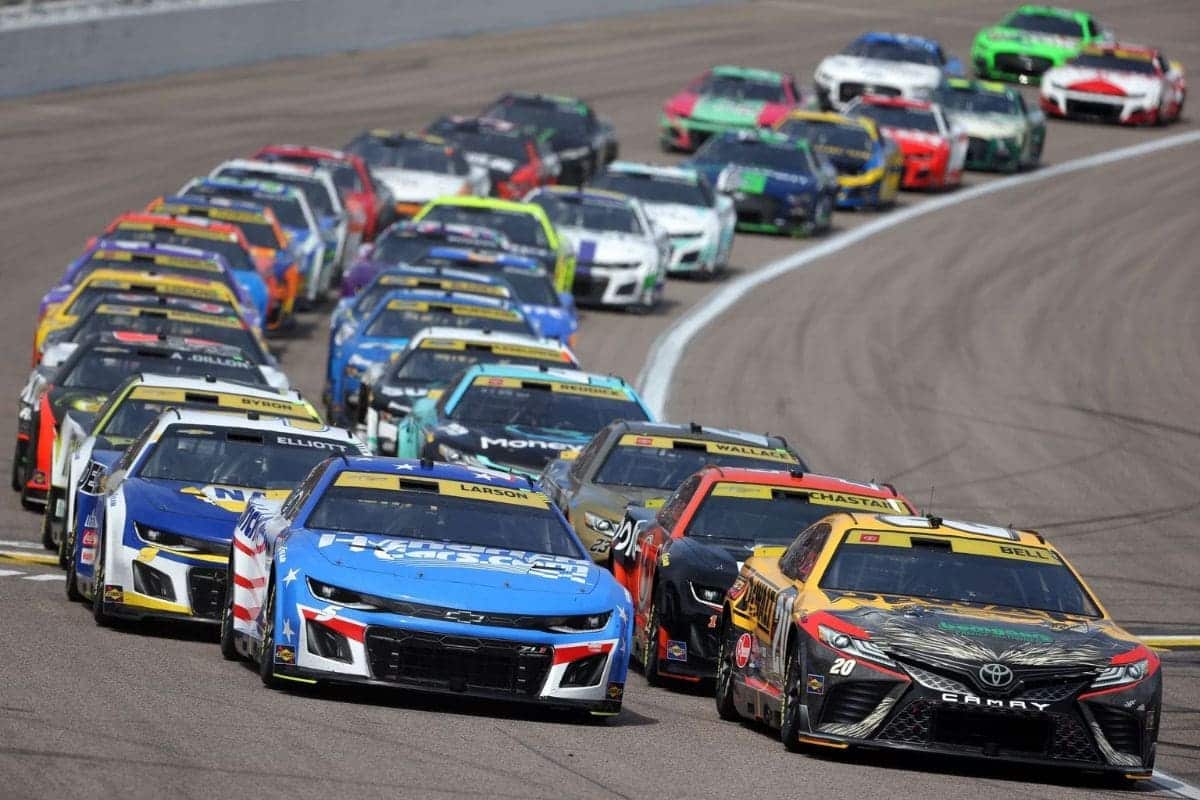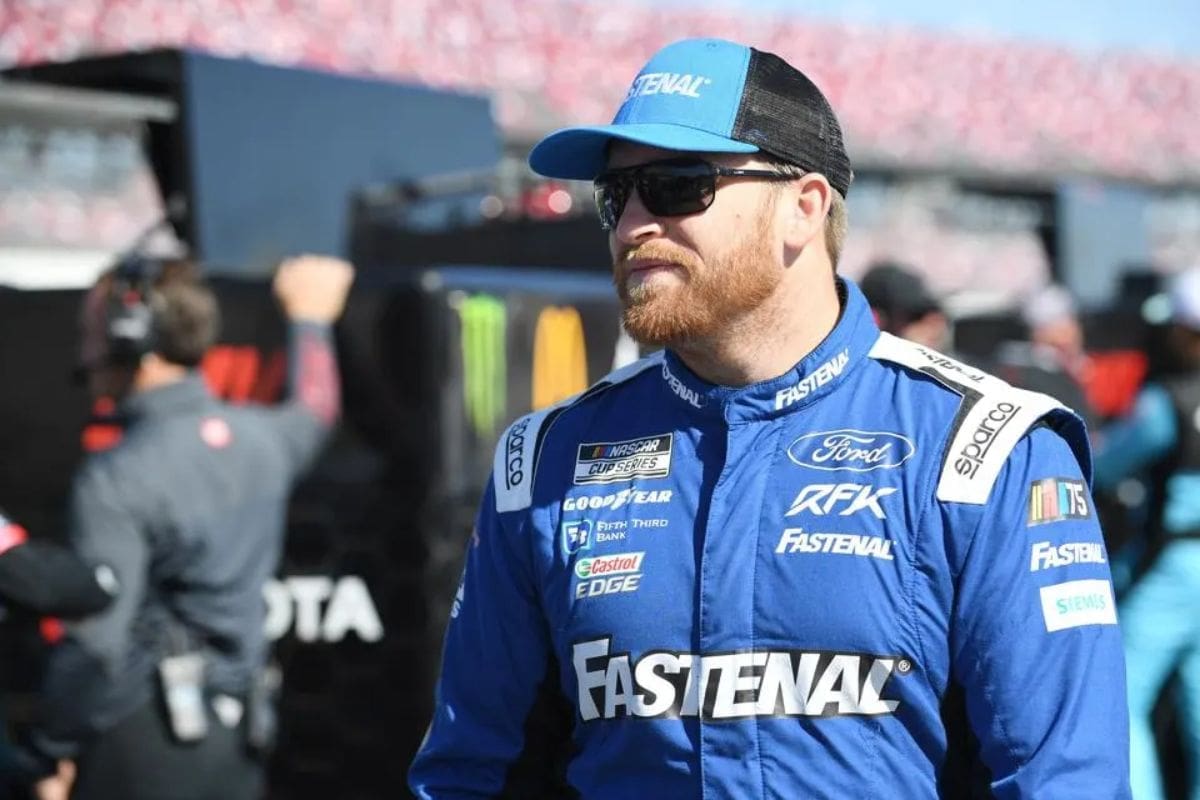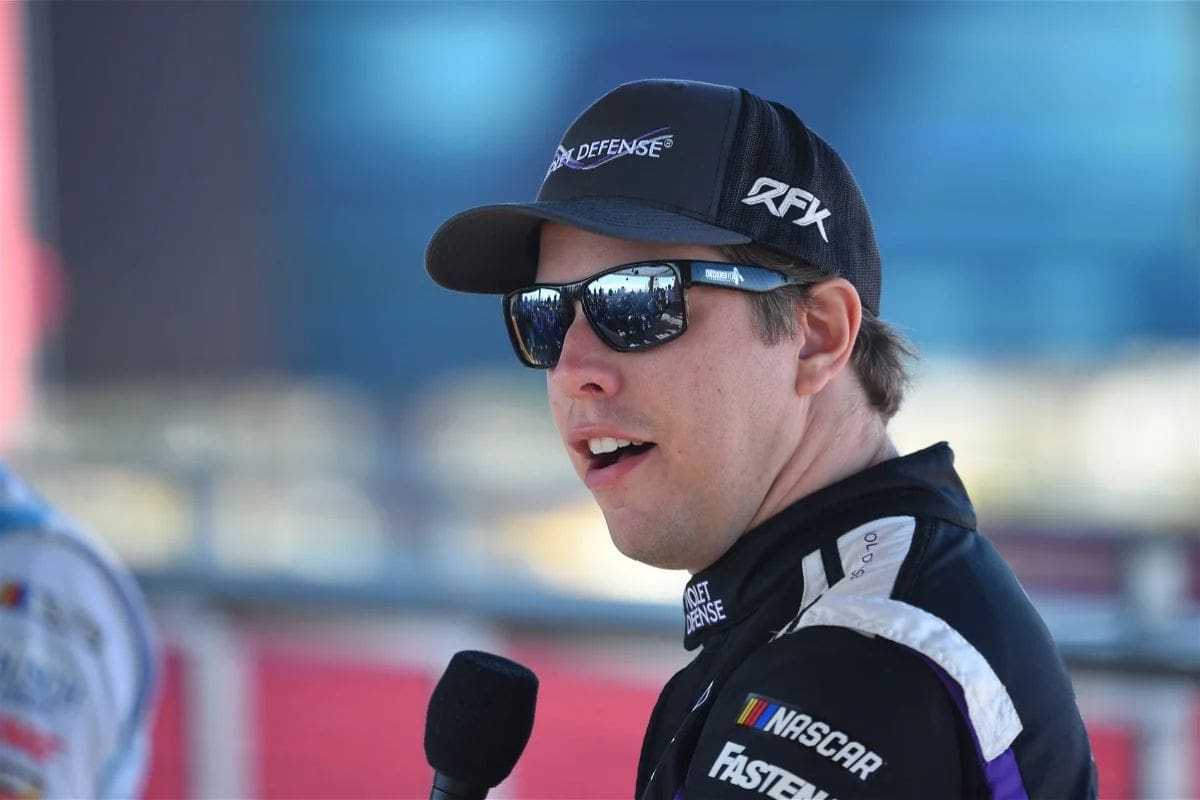Brad Keselowski’s Disappointment at Pocono: Brad Keselowski‘s recent performance at Pocono Raceway highlighted the unpredictable nature of NASCAR, where careful planning can be disrupted by poorly timed cautions and unexpected hurdles. Despite a respectable seventh-place result, the RFK Racing team experienced their strategy being compromised, resulting in evident frustration for Keselowski. His shared dissatisfaction on social media mirrors the intense competition and demands of sustaining top-notch performance. This situation raises important inquiries about how RFK Racing can adjust its tactics going forward.
Key Highlights
- Brad Keselowski was frustrated by untimely yellow flags that disrupted RFK Racing’s strategy at Pocono.
- Keselowski finished seventh despite RFK Racing’s strong initial performance and competitive strategy.
- The setbacks at Pocono highlighted the unpredictable nature of NASCAR racing.
- Keselowski expressed his disappointment on social media following the race.
- The race result showed Keselowski’s resilience and RFK Racing’s potential despite the challenges.
RFK Racing’s Disappointment at Pocono Raceway
RFK Racing encountered a series of obstacles at Pocono Raceway, with Brad Keselowski and Chris Buescher‘s promising leads ruined by untimely yellow flags. This sequence of events highlighted the volatile nature of NASCAR racing, where strategic skill can be swiftly undermined by unpredictable race conditions.
Analyzing the race dynamics, it becomes clear that RFK Racing had devised a competitive strategy, which positioned Keselowski and Buescher advantageously during the initial stages of the race. Both drivers displayed commendable expertise and tactical insight, managing to secure leads and create a promising outlook for the team.
However, the emergence of yellow flags at critical points disrupted their momentum, prompting unscheduled pit stops that significantly changed their race trajectories. This disturbance not only affected their immediate race standings but also had broader implications for their championship aspirations.
Keselowski’s Perspective and Results
Brad Keselowski’s seventh-place result at Pocono Raceway, despite a promising beginning, offers an example of how unpredictable race conditions can derail even the most well-executed plans. The experienced driver, who had shown strong speed in the RFK Racing car, was ultimately hindered by a series of poorly timed cautions that disrupted the team’s well-thought-out strategies.
Keselowski expressed his frustration on social media, acknowledging the pace of their cars but lamenting that it didn’t lead to the podium finish they had aimed for. This feeling highlights the inherent unpredictability of motorsports, where external factors can often overshadow a team’s careful preparation and sheer speed.
“[Two] gut punches. Yellows came out both times RFK cars were leading and crushed our strategy yesterday. Happy we had fast cars. Bummed it didn’t go our way.” – (Keselowski)
2 gut punches.
Yellows came out both times RFK cars were leading and crushed our strategy yesterday.
Happy we had fasts cars. Bummed it didn’t go our way. https://t.co/ideNEsv6Sd
— Brad Keselowski (@keselowski) July 15, 2024
Chris Buescher’s Consistent Performance and Season Outlook
While Keselowski’s experience at Pocono shows the unpredictability of racing, Chris Buescher’s recent display presents a different storyline of reliability and potential. Throughout the last seven races, Buescher has not only consistently finished inside the top-20 but has also achieved three top-5 placements. This consistent level of performance speaks volumes about his driving expertise and the tactical strength of RFK Racing.
Buescher’s capacity to uphold a consistent path emphasizes a disciplined approach to the races, steering clear of the challenges that have affected many of his rivals. His current form is similar to his remarkable late-season surge last year, where he clinched three victories in just five weeks. This historical context makes a strong case for his potential to repeat such success as the regular season nears its end.
Keselowski’s NASCAR Playoffs
Exploring the playoff landscape, Keselowski’s early-season victory at Darlington and Buescher’s strategic accumulation of points highlight the contrasting paths that both the drivers are taking to secure their championship aspirations. Keselowski’s victory at Darlington solidified his playoff spot, providing a foundation of stability despite subsequent setbacks. His recent seventh-place finish at Pocono is a sign of his resilience and adaptability, indicating a potential upturn as the season progresses.
Conversely, Buescher’s strategy relies on consistency and point accumulation. Currently holding a 44-point cushion above the playoff cutline, Buescher’s approach emphasizes the importance of steady performance over frequent wins. With Ross Chastain serving as a buffer, Buescher’s position remains relatively secure, yet the margin for error is narrow.
The upcoming races at Indianapolis, Michigan, and Daytona, each with their unique challenges, will be crucial in maintaining his playoff standing. Darlington, a track where Keselowski has already secured a win this season, arises as a potential decider.
News in Brief: Brad Keselowski’s Disappointment at Pocono
The setbacks experienced by RFK Racing at Pocono Raceway emphasize the unpredictability of NASCAR racing. Despite Keselowski’s seventh-place finish and Buescher’s steady performance, poorly timed cautions disrupted well-planned strategies, highlighting the crucial significance of adaptability in racing tactics.
Moving ahead, RFK Racing must enhance its approach to handle such challenges effectively, ensuring continued competitiveness and strengthening their championship goals. The team’s resilience and tactical adjustments will be vital in overcoming future hurdles.
ALSO READ: Brad Keselowski Comments On Trump’s Assassination Attempt: Calls for National Unity



